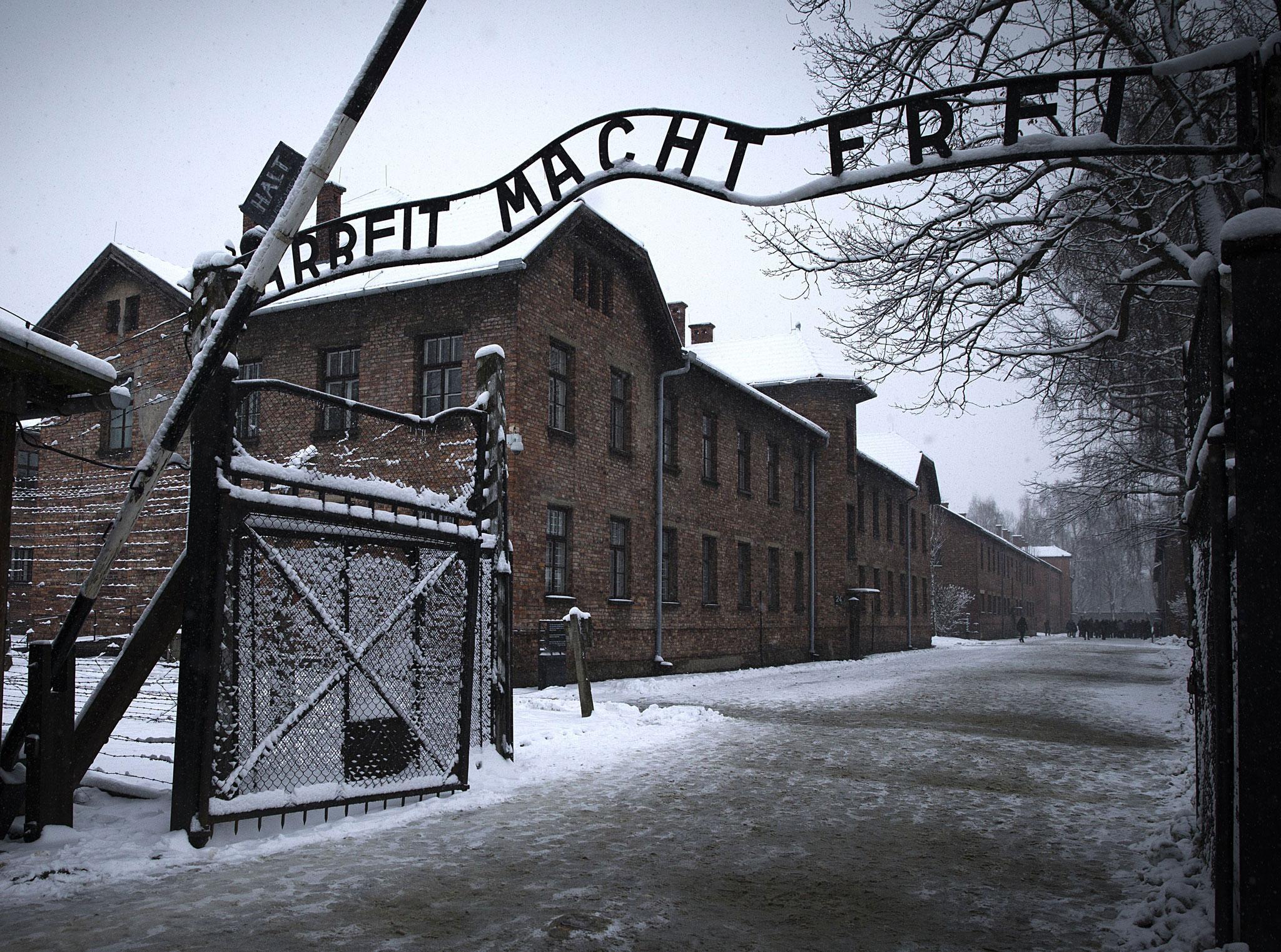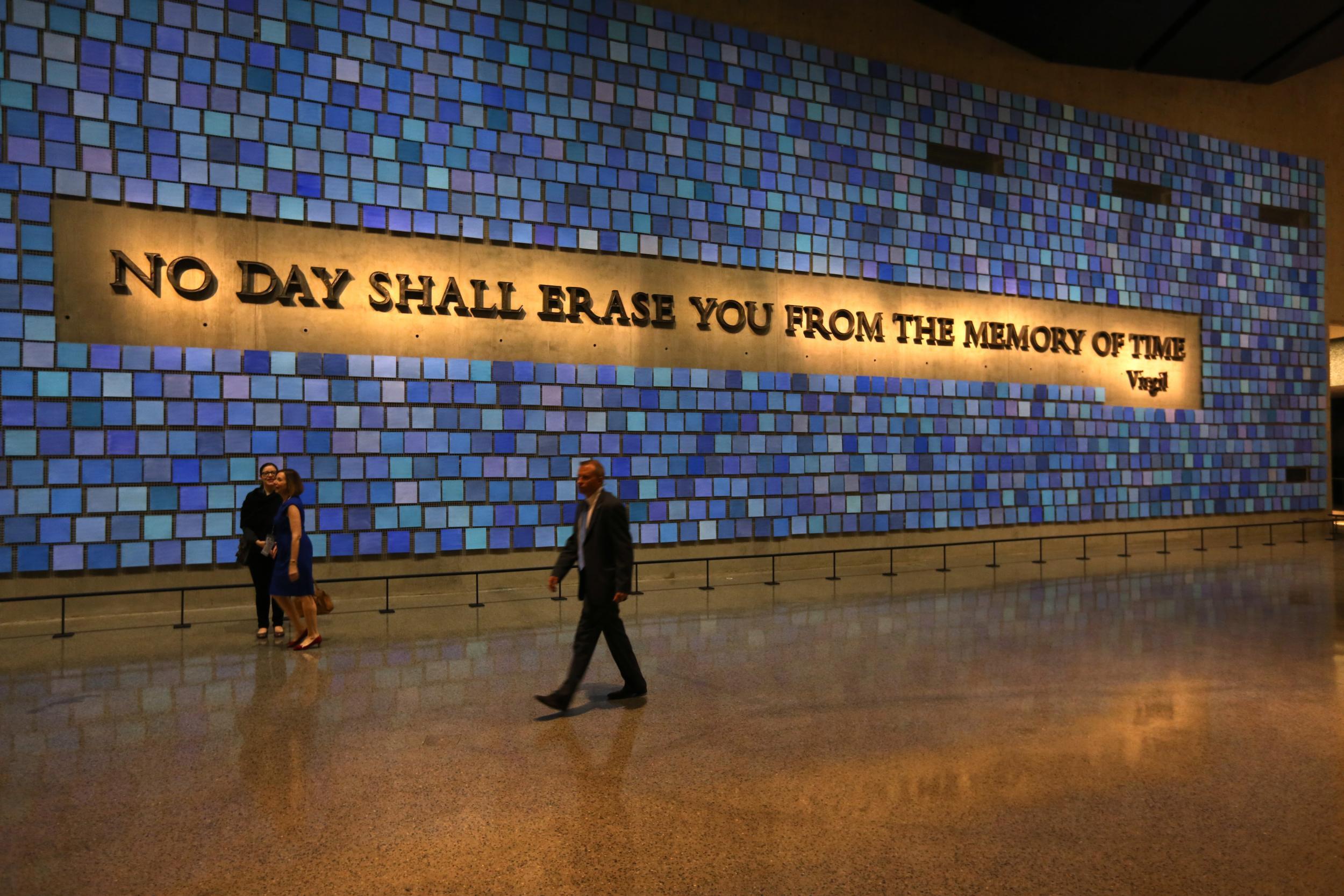Why dark tourism is more important than ever in grim political times
Visiting the sites of past atrocities is crucial when politics become ultra-divisive, according to one blogger

Your support helps us to tell the story
From reproductive rights to climate change to Big Tech, The Independent is on the ground when the story is developing. Whether it's investigating the financials of Elon Musk's pro-Trump PAC or producing our latest documentary, 'The A Word', which shines a light on the American women fighting for reproductive rights, we know how important it is to parse out the facts from the messaging.
At such a critical moment in US history, we need reporters on the ground. Your donation allows us to keep sending journalists to speak to both sides of the story.
The Independent is trusted by Americans across the entire political spectrum. And unlike many other quality news outlets, we choose not to lock Americans out of our reporting and analysis with paywalls. We believe quality journalism should be available to everyone, paid for by those who can afford it.
Your support makes all the difference.Dark tourism – essentially visiting sites with a dark past, be that genocide, murder or nuclear disaster – is more important than ever in a particularly divisive political climate, according to one dark tourism specialist.
“As is often said: those who do not learn from history are bound to repeat it,” says Peter Hohenhaus, who dedicates much of his spare time to visiting sites of mass murders, natural disasters and museums that commemorate such incidents. The Vienna-based 53-year-old runs the dark-tourism.com website and says he has visited 90 countries, over 100 cities, and between 600 and 700 dark tourism sites.
“If you learn about, say, the Holocaust or other genocides and atrocities of the past 100 years or so, it does sensitise you to current affairs,” Hohenhaus continues. “For instance, when you’ve dealt with the mechanics of propaganda a lot – be it Nazi propaganda or Communist propaganda or Hutu anti-Tutsi propaganda in Rwanda – then you see through it in the present day more easily.”
The Murambi Genocide Memorial in Rwanda, which commemorates the murder of an estimated 2 million people in the early 1990s, is one of the most affecting dark tourism spots Hohenhaus has ever visited.
“It moved me emotionally to the extreme,” he says. “It stands out among all the others because here they’ve put on display corpses of the victims of the massacres, bleached white by lime, and in horrible contorted shapes, some still clutching rosaries, others with half-split skulls. There were even babies.
“The guide leads you through room after room. It was at times pretty unbearable: heartbreaking and gut-wrenching in equal measures.
“But rather than opting out after the first room, which would have been an instinctive reaction, you feel a duty to do the circuit to the end and pay your respects to all the victims.”
The brutality of the memorial has a purpose – it is intended to prevent genocide denial in a country where more than 30 per cent of the population is illiterate.
Hohenhaus admits, however, that not all memorials are created equal. He argues: “Sometimes the very fact that a memorial site is not fairly balanced but ludicrously one-sided can actually be part of the attraction from a dark tourism perspective.
“The prime examples in this sense are found in North Korea, where the propaganda is piled so high without restraint and the views of history so skewed that this in itself makes it fascinating.”
In North Korea, tourists are always accompanied by two official tour guides, Hohenhaus says. “They give you the official state-sanctioned version of their history. For instance, with regard to the Korean War they’ll always portray it as a great victory against the ‘imperialist Yankee aggressors’. They really used such language when I was there in 2005. Or myths that Kim Jong-il had written hundreds of academic books and was the best golf player in history.”
Some might question Hohenhaus’s privileged position, in the sense that he can dip in and out of such places whenever he pleases, unlike those living with the realities of dictatorial regimes or the consequences of disasters. But Hohenhaus doesn’t see it that way. In fact, he insists dark tourism is the most educational form of travelling possible. “I feel like I’ve learned more about the world in these past few years of intensively pursuing dark tourism than I have throughout my entire formal education or academic career,” he says.
Among the best sites, in Hohenhaus’s opinion, is the National 9/11 Memorial & Museum in New York. He was impressed with how it confronted conspiracy theories surrounding the attack and showed respect to the victims. And the German Military History Museum in Dresden was “nothing short of stunning”, according to Hohenhaus. He reports that it featured highly imaginative curation, including exhibits on “war and play” and “fashion and the military”, without glamourising combat.

But, he adds, “dark tourists” should pay attention to doing dark tourism right. He has devised his own set of rules to guide him.
“Quite simply: be respectful, be restrained, show a genuine interest,” he says. “Dark tourism does not go with selfie sticks or the kind of boisterous behaviour you may get away with at more mainstream tourist sites.”
He strikes off spots where he is in direct danger of death, like war zones. And sites that he deems “obviously exploitative or voyeuristic” are struck off his list until the situation changes, as are places where the tragedy occurred too recently or is ongoing. For this reason, he sees a separation between dark tourism and so-called “slum tourism”, which he argues is about viewing ongoing misery. “To me that would feel too uncomfortably voyeuristic,” he says, “so I exclude it.”
Ultimately, however, Hohenhaus firmly believes that dark tourism is a much better way of travelling the world than more traditional holidays. “Why should complete escapism be morally better than confronting actual reality?” he asks. “Nobody has ever been able to explain that to me.”
Join our commenting forum
Join thought-provoking conversations, follow other Independent readers and see their replies
Comments